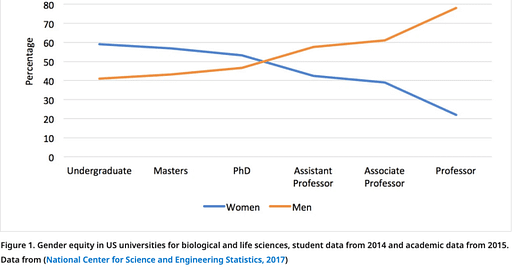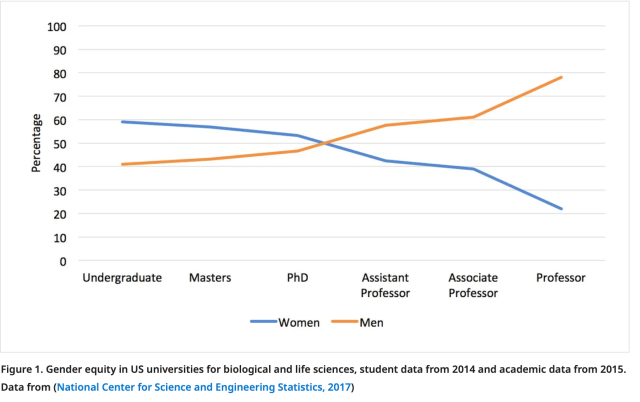Recommended reads #208
Socioeconomic roots of academic faculty: “We show that faculty are up to 25 times more likely to have a parent with a Ph.D. Moreover, this rate nearly doubles at prestigious universities and is stable across the past 50 years.” The most striking thing about the data in this paper is that this phenomenon hasn’t improved in recent years, it’s actually gotten worse.
Women in leadership face ageism at every age
When people assume you’re not in charge because you’re a woman
Sexual harassment still pervades science
“I have a fake personal assistant named Matt and it makes people take me more seriously“
NIH rules are supposed to stop ‘pass the harasser’ but they haven’t
How Mothers in Different-Sex Dual-Earner Couples Account for Inequalities in Pandemic Parenting
[I just want to note here that I cannot fathom how someone can actually read the six preceding articles and not emerge a raging feminist. But then, there are lots of folks who are still not. Which is all the more rage-inducing. Now back to our regularly scheduled programming.]
The US must invest in emerging scientists. This piece makes the point that if you’re smart and a scientist, you’re likely to do the math and take a job outside higher ed.
An experiment in the journal Functional Ecology shows a review bias against authors from the Global South. I mean we knew this, right? But now there’s data, so you are fully approved to take action and switch to double blind because it’s the right thing to do.
Here’s an opinion piece in the pages of Bioscience arguing for the return of the NSF Doctoral Dissertation Improvement Grants in Biology, which disappeared six years ago. I think the program was wonderful for PhD students not just for the small awards but also because it gave them the experience of getting a full panel review. But this disappearance tracks a trend (I think it’s a trend?) for bigger awards as the costs and staffing involved with running panels and issuing awards for small amounts might be harder to justify within NSF-BIO. I recently learned that Anthropology still has DDIGs, but also the total amount of anthropology is so very small compared to Bio at NSF, the staff might have the bandwidth to make that happen. I’ve heard folks at NSF say that more funding goes to grad student research since the DDIGs disappeared, so the issue isn’t the amount of support but how it happens. Anyhow, if you haven’t seen this, now you see it.
The asteroid and the fern highlighted read
So universities are now getting into the deployment of devices to track when people are at their desks? Here’s a story about the rebellion to this at Northeastern University and now UC San Diego is on it too? How many else of y’all have these doohickeys installed your offices and labs? I suspect the motives are wholly nefarious but that doesn’t make it not bad.
This article about a couple that was deep into the Christian homeschooling movement and decided to send their kids to public school is totally a great read.
What calls for ‘a return to rigor’ are wrong.
“The rise and fall of science writing” I think I disagree with most everything in here and I think that there is a ton of spectacular and original science writing out there in the world right now. But still an interesting read.
“The brokenness of academia cannot be reduced to one problem. Burnout is fed by many systemic problems. Our hope is that by adopting the language of virtue ethics and highlighting the danger of vicious excess, it will be easier to recognize the excesses that have become pervasive in higher education. A virtuous community is, by definition, dynamic and diverse.”
“The surprising recipe for building students’ emotional well-being in the classroom? Rest and joy — for professors“
“PNAS is not a good journal (and other hard truths about journal prestige)”
“Why Gen X sucks” (and yes folks, I’m smack in the middle of Gen X by the way)
How grad school turned me into Darth Vader
Please watch this TedX talk:
update 25 June 2023
One commenter indicated that women are getting jobs and getting promoted preferentially over men?! Which does not comport with the data. Here’s a figure showing this, and the link is in the comments.



